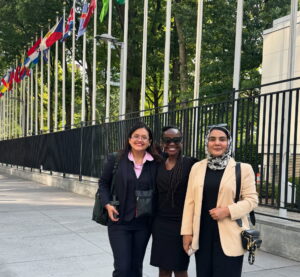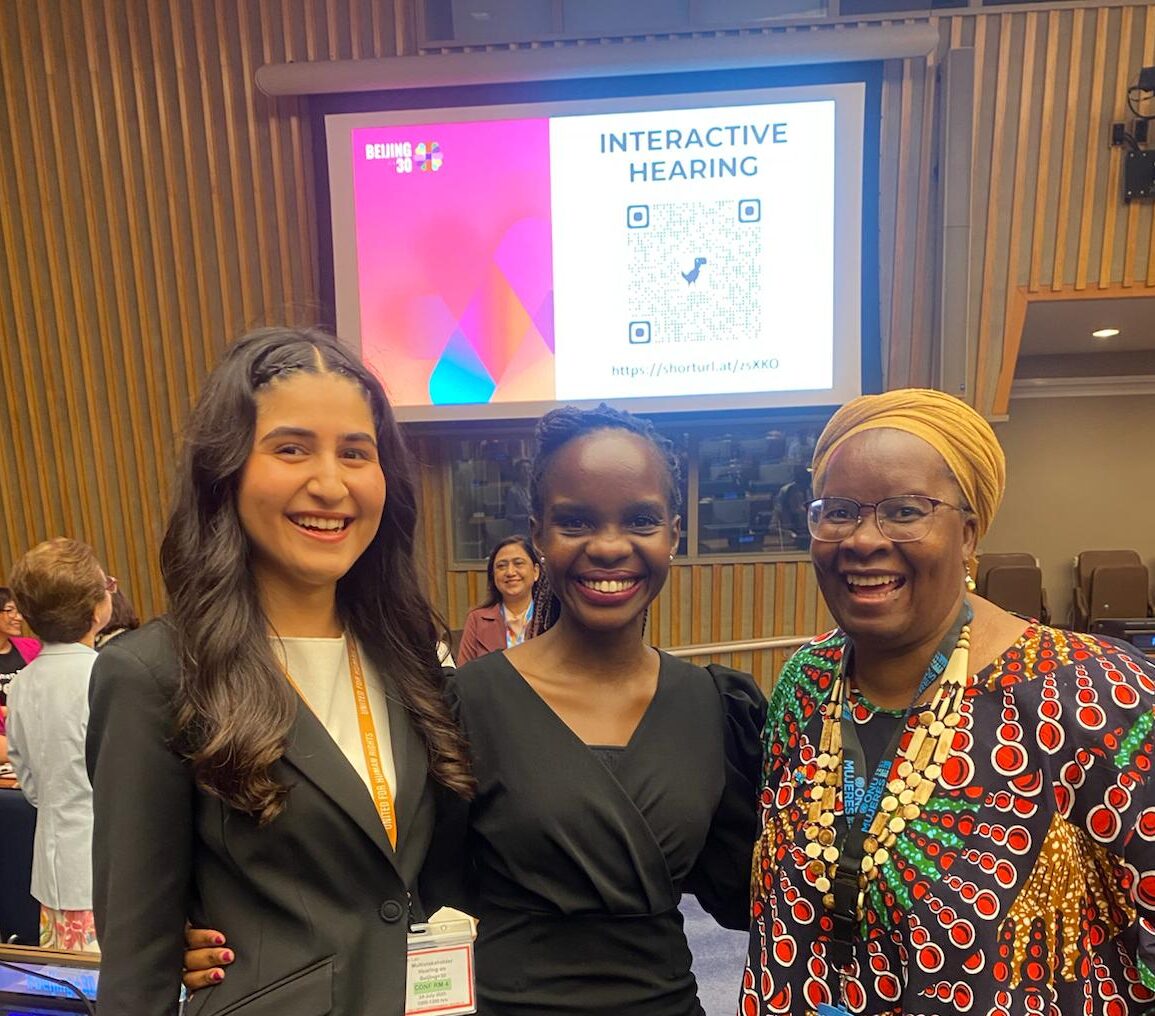New York, USA— On July 24, 2025, a day after the High-level Political Forum on Sustainable Development (HLPF), the United Nations Headquarters hosted an Interactive Multi-stakeholder Hearing to commemorate the 30th anniversary of the Beijing Declaration and Platform for Action (1995).
The session was a cornerstone commitment to advancing women’s and girls’ rights. It was organized by UN Women and attended by multiple stakeholders advocating for gender equality and justice, including the African Center for Health, Climate & Gender Justice Alliance (ACHCGA), Ford Foundation, Microsoft, Equality Now, and other global organizations. The session highlighted the urgent need to address persistent gender equality gaps as part of sustainable development.

Speaking during the session, H.E. Maurizio Massari, President of the assembly and permanent secretary from Italy to the United Nations, said, “Women and girls cannot wait 68 years for child marriage to become history.”
His words painstakingly underscored the slow progress since the Beijing Declaration, which set ambitious goals for empowering women and dismantling systemic barriers. Despite decades of advocacy, challenges like poverty and discrimination continue to undermine these rights.
Accordingly, Sima Bahous, the Executive Director for UN Women, said, “We want to place young people, feminists, girls, and young women at the centre of development. Let history judge us not by our promises but by the rights fulfilled for women and girls .” She advocated for progress towards gender equality.
Maka Chikowero, founder and president of MTC Educate A Girl, decried, “Systemic poverty among women contributes to school dropouts.” Chikowero underscored that “Child marriage remains a challenge.” She decried that “Lack of access and the digital divide make it a challenge for women, especially those in the rural areas.”
Accordingly, Imali Ngusale, the Lead Strategist at the African Center for Health, Climate & Gender Justice Alliance (ACHCGA) said that there needs to be intentional funding for the Global South. Ngusale emphasized that the intentionality of gender equality must put in place mechanisms that attempt to help women in the global south.
“We must move beyond rhetoric and embrace change that will help us achieve what we have been documenting for the last 30 years,” added Ngusale while submitting the African Center for Health, Climate & Gender Justice Alliance (ACHCGA) position on gender justice.’

